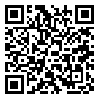Volume 9, Issue 1 (5-2023)
فصلنامه تحقیقات بنیادین علوم انسانی 2023, 9(1): 171-171 |
Back to browse issues page
Download citation:
BibTeX | RIS | EndNote | Medlars | ProCite | Reference Manager | RefWorks
Send citation to:



BibTeX | RIS | EndNote | Medlars | ProCite | Reference Manager | RefWorks
Send citation to:
Kamani Najafabadi M. Theorizing Methods of Religious Texts in the Humanities Studies
(Review of the Period 1380 to 1400. فصلنامه تحقیقات بنیادین علوم انسانی 2023; 9 (1) :171-171
URL: http://frh.sccsr.ac.ir/article-1-523-en.html
URL: http://frh.sccsr.ac.ir/article-1-523-en.html
Abstract: (5110 Views)
Today, the theorization of religious texts (Qur'an and Hadith) has been seriously considered, of course, after developing the issues of possibility, necessity and foundations of religious knowledge production.
In recent years, many works have been published that attempt to apply, test, and invent procedures for deriving scientific theories from religious texts.
Recognizing these efforts will help all those involved in the field of Islamic theorizing to use the data and methods produced to develop this path, but despite all this, these works have been authored by many people, in different fields of human sciences, in different scientific centers, and in different scientific publications;
Therefore, the knowledge of the dataset in this area requires a study in the "narrative review" method to provide a platform for better understanding and presentation of the progress made and comparison of creative or employment methods; Therefore, the present article has identified and presented the methods that lead to the scientific theorization of religious texts, or at least the presenters have designed and presented them for the purpose of theorizing religious texts.
It also shows that in the articles and books published in Persian language in Iran between 1380 and the beginning of 1400, fifteen methods of theorizing religious texts were used or invented. Meanwhile, half of the theorizing was done with two methods of qualitative content analysis and grounded theory.
In recent years, many works have been published that attempt to apply, test, and invent procedures for deriving scientific theories from religious texts.
Recognizing these efforts will help all those involved in the field of Islamic theorizing to use the data and methods produced to develop this path, but despite all this, these works have been authored by many people, in different fields of human sciences, in different scientific centers, and in different scientific publications;
Therefore, the knowledge of the dataset in this area requires a study in the "narrative review" method to provide a platform for better understanding and presentation of the progress made and comparison of creative or employment methods; Therefore, the present article has identified and presented the methods that lead to the scientific theorization of religious texts, or at least the presenters have designed and presented them for the purpose of theorizing religious texts.
It also shows that in the articles and books published in Persian language in Iran between 1380 and the beginning of 1400, fifteen methods of theorizing religious texts were used or invented. Meanwhile, half of the theorizing was done with two methods of qualitative content analysis and grounded theory.
Keywords: theorizing method, Islamic theorizing, religious knowledge, religious theory, Islamic humanities, Islamic paradigm, humanities research method.
Send email to the article author
| Rights and permissions | |
 |
This work is licensed under a Creative Commons Attribution-NonCommercial 4.0 International License. |







